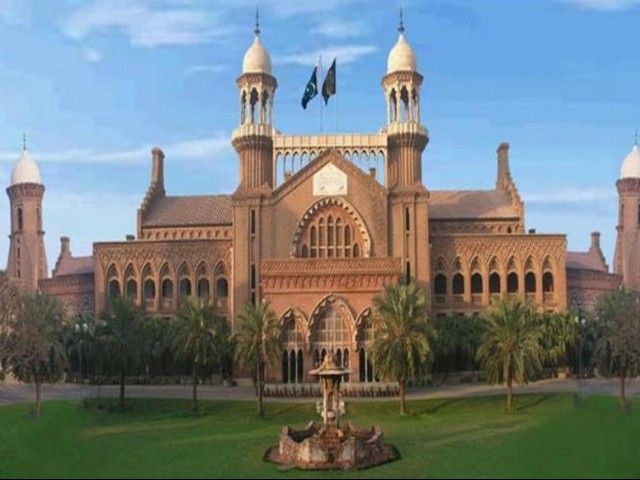Petition seeks shifting of industrial units in Lahore
Petitioner says such a move necessary to avoid smog

Lahore High Court. PHOTO: LHC.GOV.PK
Petitioner Immad Hasan, in his petition, named the Punjab Environmental Protection Agency and secretary transport government as respondents. He contended the current status of increased air pollution warrants the need to raise a red flag as smog has engulfed the entire city. He predicted foreseeable, yet preventable, calamities and said some of these were eye diseases and respiratory disorders.
He contended that at present, smog is being created by vehicular emissions and industrial fumes which react with the atmosphere and sunlight to form photochemical smog. He stated this photochemical smog contains a toxic mixture of air pollutants like Sulphur dioxide, nitrogen oxides, ozone and other volatile organic compounds.
He implored the court that smog has enveloped Lahore and Gujranwala and these areas have become the most affected cities. He added that despite court orders, the environment department had not taken any concrete measures to control the situation.
He highlighted that industrial units were working in residential areas, but concerned authorities were merely rendering the role of silent spectators. He asked the court to issue directions to shift industrial units to far flung areas rather than allowing them to work in residential ones. He further requested that the secretary transport also be ordered to take strict action against smoking-emitting vehicles.
The air quality of the provincial capital and adjoining districts has touched alarming levels during the current season over the last two years.
Winter conditions are causing severe environmental issues in the country, especially in southern and central Punjab, which are not only affecting routine life but also intensifying respiratory diseases among the public.
Even though in several areas of the country deep swamp conditions are being witnessed during October to December since the last two years, neither the provincial nor federal government took any serious step to deal with this situation.
Previously, a delegation of Nepalese environment experts visited areas in southern Punjab in September and highlighted the fact that over 2,000 traditional brick kilns are working in the area.
Published in The Express Tribune, November 24th, 2019.


















COMMENTS
Comments are moderated and generally will be posted if they are on-topic and not abusive.
For more information, please see our Comments FAQ